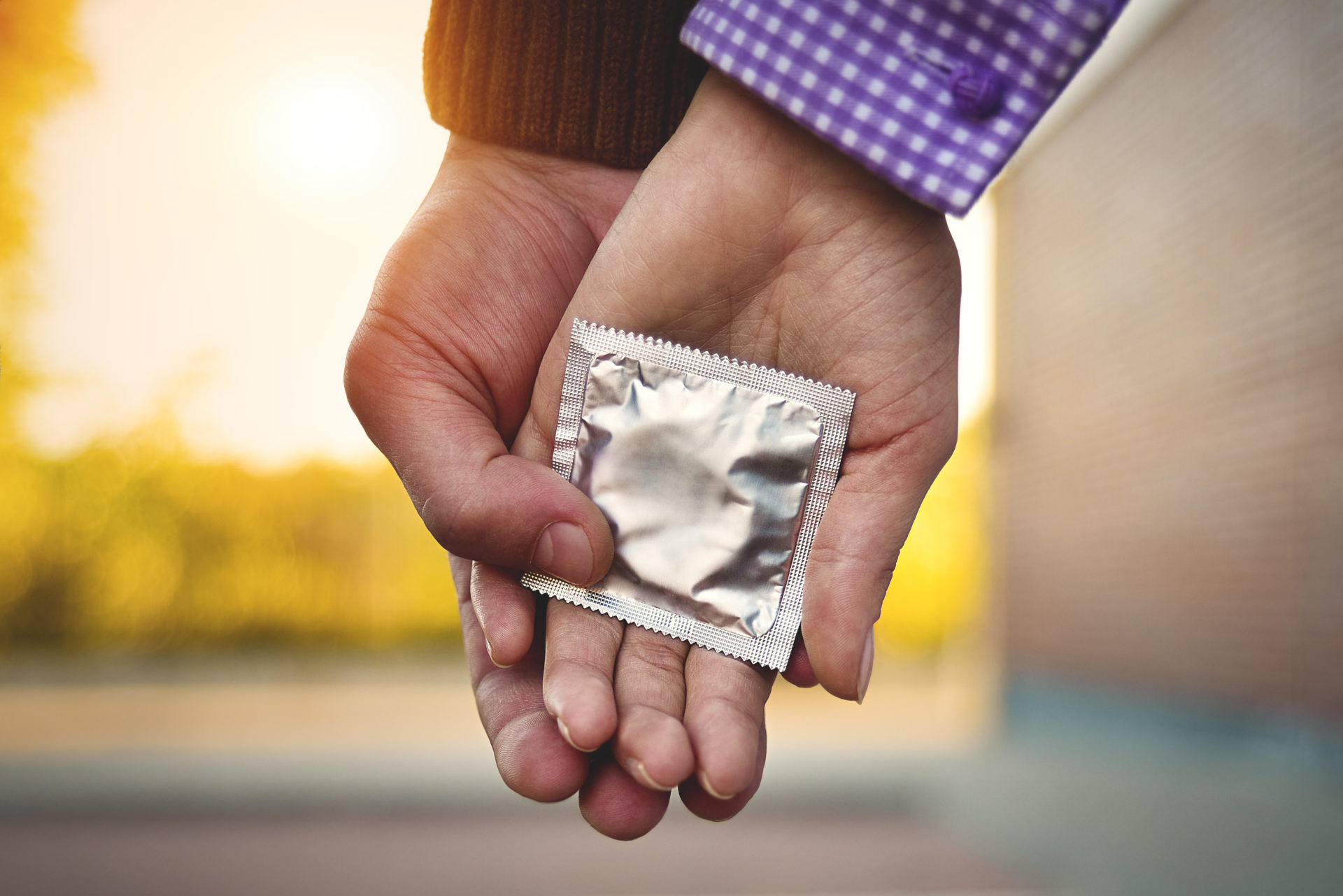STIs rates are surging in Ireland as young people increasingly shun condoms.
New research released by the ERSI found that over 80% of young people can identify condoms as the most important way to prevent STIs.
However, close to 40% of men and 32% of women do not always use them or other forms of contraception when having sex.
Last year, the Health Protection Surveillance Centre reported that the number of STIs had surged by one third in the space of a year.
On Newstalk Breakfast, consultant Dr Aisling Loy said the findings “reflect” what she sees on a daily basis at St James’ Hospital in Dublin.
“They know that condoms are for protecting against STIs but sort of think STIs can discriminate and only certain types of people [get them],” she said.
“Which obviously isn’t true.
“So, there is that disconnect from who should be using condoms and who doesn’t use condoms.”
 A couple holding a condom. Picture by: Alamy.com.
A couple holding a condom. Picture by: Alamy.com.When it comes to rates of infection, Dr Loy said men and women are “very much in the same boat”.
“They should be equally responsible for using barrier contraception,” she said.
“Often, I think the onus is sometimes put on men to be carrying condoms and that women can be looked down upon if they produce them.
“So, we always offer condoms in the clinic to women and men to carry with them.”
 A man taking condom from out of his pocket. Picture by: Alamy.com.
A man taking condom from out of his pocket. Picture by: Alamy.com.Despite this, Dr Loy said she feels young women still feel “shame and stigma” at the idea of carrying condoms with them.
There is also a sense that only a certain type of people are at risk of contracting an STI.
“There definitely is this attitude that it only affects other people and that you can tell by looking at someone whether or not they would be the type of person to get a sexually transmitted infection,” she said.
“I’m in that clinic five days a week and I’ve heard that multiple times every day for 20-years.
“That, ‘I’m worried about this one person I was with because of how they look’ or something they’d heard about them.
“But everyone else, all the other six people they’d had unprotected sex with last year, they’d no concerns about.”
The HSE offers STI testing kits that are sent out to a person’s home for free.
Main image: A condom. Picture by: Niall Carson/PA Archive/PA Images









